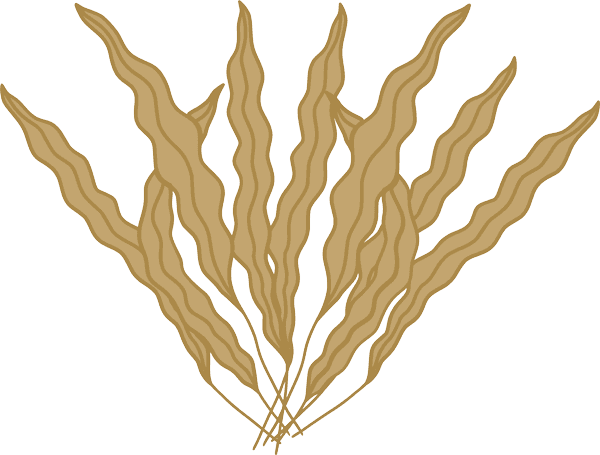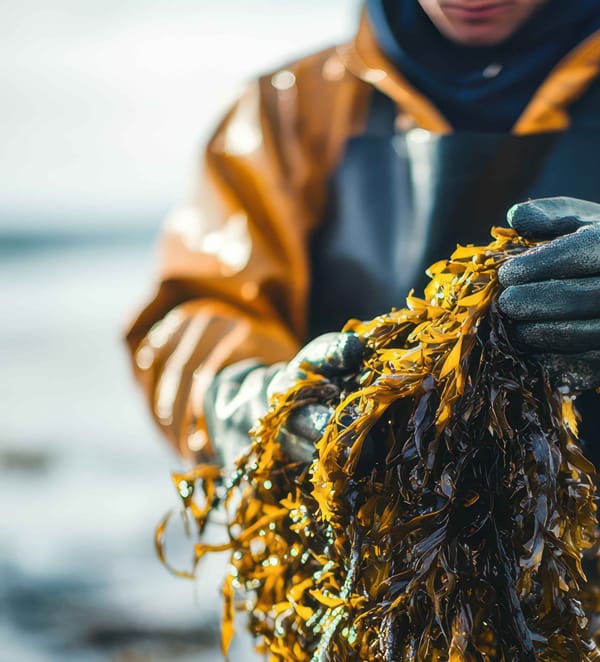
Seaweed Aquaculture Governance in Australia Report 2023
This report emphasises the significant role of governance in shaping Australia’s seaweed aquaculture industry.
Interested in permit & licensing information in other Australian states?
Find another state
The main government department(s) that provides guidance and information on establishing and operating a seaweed business in South Australia:
Recreational seaweed harvesting is for personal use, not for commercial sale, like gardening, crafts, or small-scale consumption. If you are interested in understanding about licensing and permits for these activities
South Australia (SA) is home to approximately 3000 different seaweed species, with the seaweed in the early stages of development. It is regulated under the Aquaculture Act 2001 and the Fisheries Management Act 2007 and associated regulations and policies.
Seaweed aquaculture is a relatively new sector using both land-based and marine based aquaculture licences to grow seaweed species. For example, marine longlines are being used to collect seaweed through natural accumulation (or biofouling).
The Commercial Wild Harvest seaweed industry is also emerging, whereby seaweed is harvested from the wild (beach cast material or direct from ocean) with collection regulated through fishery permits.
Key: N = Native, A = Aquaculture
COMMERCIAL SEAWEED WILD HARVEST & AQUACULTURE
Recreational Seaweed COLLECTION

Before You Apply
Beach-Cast Marine Algae Harvesting
Wild Broodstock and/or Seedstock Collection
Note: There is a difference between broodstock and seedstock collection. This is defined within the Fisheries Management (Miscellaneous Broodstock and Seedstock Fishery) Regulations 2013. Ensure you choose the right one for your purposes.
Note: Pest seaweeds cannot be commercially produced or harvested.
Movement (translocation) of seaweed
Note: A new Biosecurity Bill is in progress, which will provide additional guidelines on macroalgae translocation and stock requirements. Keep updated on these developments as they may affect your business operations.
PIRSA Fisheries and Aquaculture
pirsa.aquaculture@sa.gov.au
(08) 8207 5332
GPO Box 1625, Adelaide S.A. 5001.
Note: A new Biosecurity Bill is in progress, which will provide additional guidelines on macroalgae translocation and stock requirements. Keep updated on these developments as they may affect your business operations.
PIRSA have developed specified macroalgae management areas to manage the unknown seaweed biosecurity (pest and disease) and genetic risks associated with stock movement. The management areas ensure seaweed seedstock or broodstock collection for aquaculture originates from the same macroalgae management area as the licensed area or discharge point for land-based aquaculture sites.
View a map of the management areas and location descriptions for each management area:
PIRSA Fisheries and Aquaculture
pirsa.aquaculture@sa.gov.au
(08) 8207 5332
GPO Box 1625, Adelaide S.A. 5001.
We have included links to some resources that are relevant to this state, but additional publications can be found in Seaweed Central, so please search the Knowledge Hub.

This report emphasises the significant role of governance in shaping Australia’s seaweed aquaculture industry.
We have included links to the key legislation for this state, but additional regulations may apply depending on the type of seaweed activities or operations you are undertaking.

What is recreational harvesting and do I need a licence?
Seaweed found on beaches is not considered food-safe as it is impossible to predict how long the seaweed has been beach-cast or whether it may have come into contact with contaminants.
Find more information to help navigate permitting and licensing for Commercial Seaweed businesses in Australia